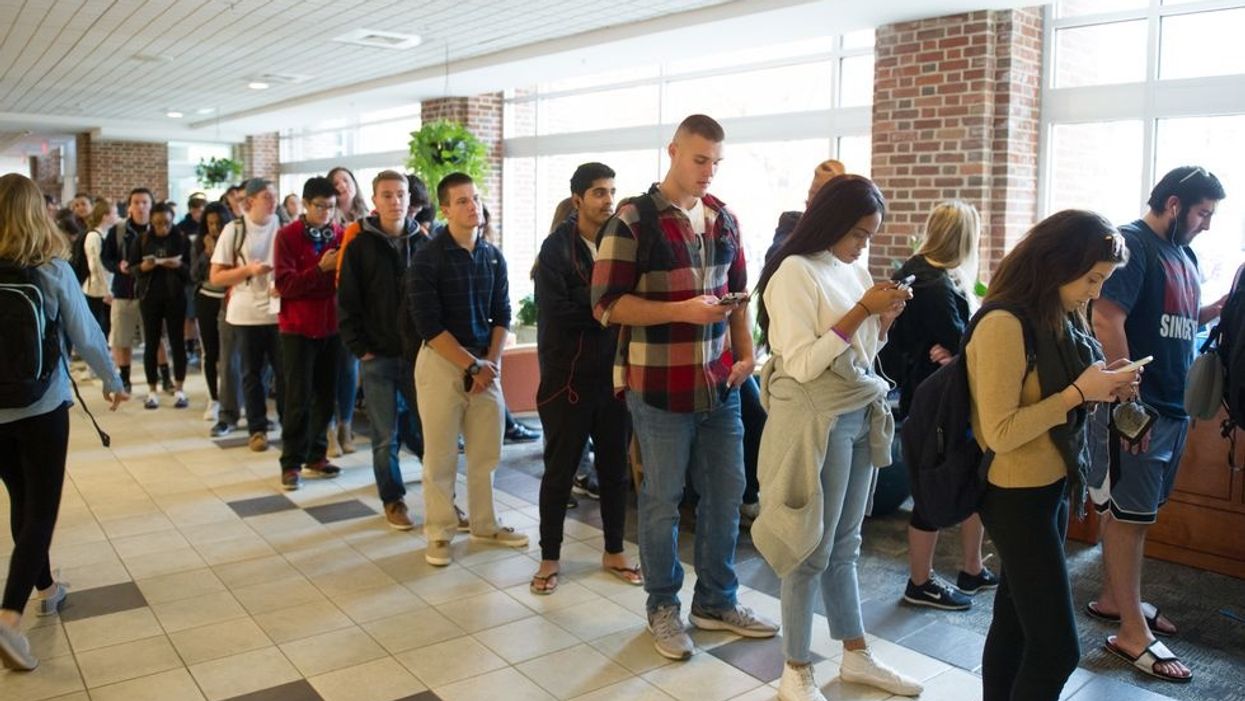Gatheru is the outreach manager at American Promise, which advocates for amending the Constitution to permit laws that regulate the raising and spending of campaign funds. She graduated two years ago from the University of Connecticut.
When young Americans come together, we can make a big impact. That's what we've seen throughout history. Alexander Hamilton and Betsy Ross were in their early 20s during the American Revolution. Frederick Douglass was 23 years old when he took the stage at the Massachusetts Anti-Slavery Society. Alice Paul through her 20s led the fight for the 19th Amendment and women's voting rights.
And that's what we're seeing today in youth-led climate movements around the globe and the movement to end mass shootings here in the United States. But one issue that doesn't get as much attention sits at the root of our modern problems: big money in politics.
Money in our political system has completely eroded the promise of a functioning and just democracy. Due to a series of Supreme Court cases, corporations have the same rights as humans, special interests control Capitol Hill and democracy only works for those who can afford it. This is the dystopia my generation has inherited.
Add that to crippling student loans, historic income inequality and looming environmental degradation, and our generation faces issues that money in politics continues to compound and exacerbate. The fossil fuel industry and others who benefit in the short-term from environmentally harmful practices have spent more than $2 billion since 2000 to kill comprehensive climate change legislation. As we witness ongoing gun violence in our nation, the gun lobby continues to spend millions of dollars a year to ensure gun control legislation stays off the table.
Big money forces are actively blocking measures to keep us and our planet safe. Nearly everywhere you find an issue perpetuated by government inaction, you can follow the money back to groups, businesses or organizations that have a vested interest in the status quo.
Until we address the root cause, though, transformative policies are doomed. That is why getting big money out of politics is the cause of our time.
At the third National Citizen Leadership Conference in October, American Promise and more than 50 college students launched the Cause of Our Time program calling on young Americans to rally around the movement to end big money domination of our elections — and to do so as fervently as they are rallying around other pressing movements. Fixing our broken campaign finance system is a bold goal that takes a bold solution: a constitutional amendment.
American Promise is spearheading the cross-partisan push for a 28th Amendment to the Constitution. So far, 20 states and more than 800 towns and cities, representing 46 percent of the population, have called on Congress to pass such an amendment and send it to the states for ratification. Since 2018, American Promise has secured pledges from more than 250 candidates at all levels of government who commit to advance the amendment if elected. And at this year's Citizen Lobby Day, citizen leaders held more than 120 meetings with members of Congress to advocate for the amendment.
Our movement is strong; with an infusion of passion and energy from a base of young Americans, it will become unstoppable. Ratifying the 28th Amendment is the key to unlocking the potential of other youth-led reform movements and engaging Americans who are typically resigned to check out of the political process.
It is our goal to get 10,000 young Americans to sign on to support this movement by the end of 2019. If you're ready to join in, sign the Cause of Our Time Statement of Principle today.


















Trump & Hegseth gave Mark Kelly a huge 2028 gift